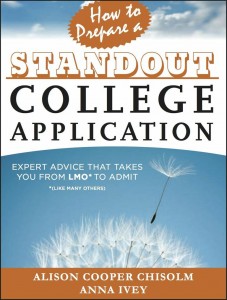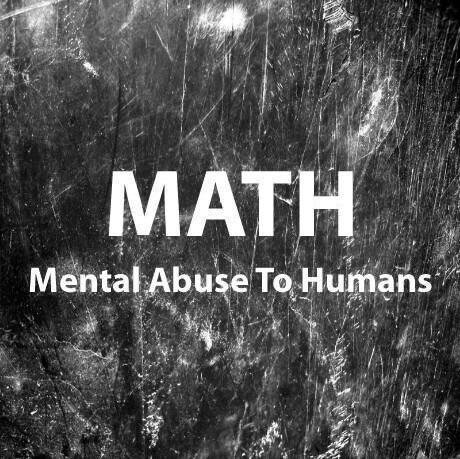 Look around you and examine all the inventions surrounding you: is there a light bulb in the room? Is there an IPod playing music in the background? Is there a vacuum cleaner in the closest? We see these objects and we remember the success of their inventors, but what we often don’t think about is all the failure that they experienced before they finally created the product we use today. And we forget that those failures were the most essential part of the invention process: they provided information about what methods didn’t work and what the inventors should try next. Still, we ignore those failures because, as a culture, we have forgotten the importance of failure and have made it something to be avoided, punished, and forgotten.
Look around you and examine all the inventions surrounding you: is there a light bulb in the room? Is there an IPod playing music in the background? Is there a vacuum cleaner in the closest? We see these objects and we remember the success of their inventors, but what we often don’t think about is all the failure that they experienced before they finally created the product we use today. And we forget that those failures were the most essential part of the invention process: they provided information about what methods didn’t work and what the inventors should try next. Still, we ignore those failures because, as a culture, we have forgotten the importance of failure and have made it something to be avoided, punished, and forgotten.
Why has this become part of our culture? Well, our education system, through its use of ranking systems and punishments, has ingrained students with the idea that failure is to be avoided at all costs. When students receive an “F” on their report card they are scolded or held back, both of which are negative consequences for their failure. And when students succeed, they are given an “A” and praised. Students quickly learn to use the most accepted methods to achieve good grades and to not attempt things in which they may fail. These lessons have created a culture of individuals who avoid new or creative avenues of thought in favor of the tried and true as to avoid failure. Instead of encouraging learning, the ranking system has taught students only how to follow instructions and do as they’re told, effectively squashing the learning process.
Why Failure is an Essential Process of Learning
Babies are perfect examples of how failure can be the best teacher. As babies develop and learn things like walking and talking, adults are not actively instructing or ranking their progress. Instead, babies learn through a process of experimentation: they simply try over and over again until they achieve the results they were looking for.
Think of a baby beginning to walk. They stand and they walk until they fall down. And then they try it again. Every attempt teaches them new things about what works the best until all of the sudden they are walking and then even running. A similar process happens with talking: babies attempt talking for a long time before they ever successfully articulate a word. This same process that we accept in young children is the one we have destroyed in our education system. Those creative learning powers that babies use so easily have been stripped from us in our adolescence, severely hampering our learning abilities.
The Failure of Ranking Systems in Schools
The grading system itself is not what causes this fear of failure, that has come with the work of schools in turning failure into something sinful and wrong. Think of a time you received a poor grade in a class. Did your parents or teachers ask you what methods you tried? Did they congratulate you on trying something different? Did they encourage you to try a new method to see if it worked better? Most likely, their response was to scold or punish you for your inability, maybe you were even held back a grade. This response to a bad grade teaches students that their failure is shameful and never to be repeated.
As students learn this lesson better and better, they begin to employ two methods to avoid failure. They stop exploring and experimenting with various solutions or processes, and instead, they begin to follow the most consistent method of achieving success. Students learn how to follow instructions rather than engaging with the problem in a meaningful way. The second method that many students employ is to stop trying. They label themselves as someone who is not capable of the task. “I’m not a math person” or “I’ll never understand English” are defense mechanisms to prevent the shame of failure. These methods will follow students into their future professions where they will avoid tasks that appear too challenging or stick with the approved methods instead of attempting innovation.
How Can We Remedy the Damage?
The first step to accepting failure and learning from it is to remove the idea of shame from failure. This means also removing the blame. We often assign blame when failure is involved, and when a student fails, it’s their abilities that we blame for their failure. However, we must change this attitude and stop trying to assign blame. Instead we must first consider the reason for failure and assess whether a lesson can be learned from this failure. If the student has failed because they weren’t sure exactly how to accomplish something and simply tried a method, we need to acknowledge their attempts and encourage them to try a new method. We want to encourage students to seek success because they want the satisfaction rather than asking them to achieve success in order to conform and avoid punishment. By doing this we can re-establish the value of failure, and we can begin again to learn the important lessons failure has to offer us.
What We Stand to Gain
There’s an old saying that goes “if at first you don’t succeed, try, try again.” This saying espouses an idea that failure is not the end of a process; instead, it is a stepping stone on the pass to success. We have lost the wisdom of this idea and have become crippled with our fear of failure. For a moment, imagine how many things you would try or do differently if you were not worried about failing. Isn’t it freeing? By removing the shame of failure from our school systems, we may be able to release our students to a land of learning full of experimentation, innovation, and success.
______________________________
Today’s guest post is contributed by Launch Education Group, founded in 2007. They offer one-to-one, in-home quality tutoring programs for SAT and ISEE prep in the greater Los Angeles and New York City area. Follow Launch Education Group on Facebook.
 Recently I received a book to review about how to create an application that stands out from the others. The book, How to Prepare a Standout College Application: Expert Advice That Takes You From LMO (like many others) to Admit, is written by Allison Cooper Chisolm and Anna Ivey, both former admissions officers at top universities. They have drawn from their experiences and given parents and students a step by step process on how to complete a stellar college application that makes an impression on admissions officers.
Recently I received a book to review about how to create an application that stands out from the others. The book, How to Prepare a Standout College Application: Expert Advice That Takes You From LMO (like many others) to Admit, is written by Allison Cooper Chisolm and Anna Ivey, both former admissions officers at top universities. They have drawn from their experiences and given parents and students a step by step process on how to complete a stellar college application that makes an impression on admissions officers.








